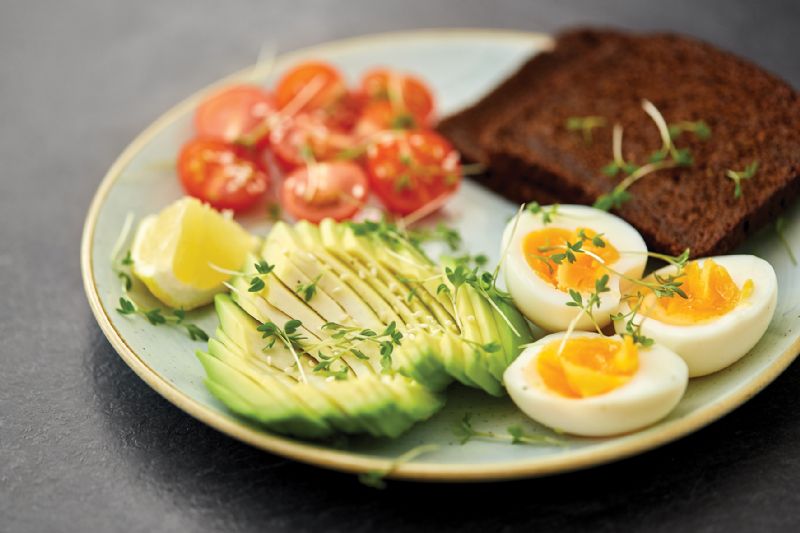- Home
- News, Articles & Reviews
- All Health & Beauty
- Looking Good, Feeling Great
- Medical Health
- Mirror Mirror on the Wall
- Style & Fashion
- General
- Vintage & Sustainable Fashion
We are hiring! Please click here to join our growing magazine delivery team in Gloucestershire!
Areas
Health & Beauty
Archive

Exploring Chrononutrition
All Areas > Health & Beauty > Looking Good, Feeling Great
Author: Will Mbanga, Posted: Wednesday, 23rd April 2025, 09:00
When we think about nutrition, we often focus on what we eat – calories, macronutrients and vitamins – but when we eat is just as important. In this second part of our series on Chrononutrition, we explore how aligning meal timing with our circadian rhythm can improve metabolism, sustain energy, and even promote longevity.
Our bodies operate on a 24-hour circadian rhythm, which regulates sleep/wake cycles, hormone production, body temperature and metabolism.
Just as disrupted sleep can leave you feeling sluggish, eating at irregular times can throw your body off balance, leading to digestive issues, weight gain and an increased risk of chronic disease.
One approach that helps synchronise eating with our natural rhythms is Intermittent Fasting (IF). A common method is the 10-hour eating window, where all meals are consumed within 10 hours, followed by a 14-hour fast. For example, if you breakfast at 7am, your last meal should be by 5pm. By aligning meal timing with your body’s natural processes, you can improve digestion, regulate energy and support long-term health.
Our bodies process food differently depending on the time of day:
• Morning digestion is more efficient – our gut is most active earlier in the day.
• Insulin sensitivity is highest in the morning, meaning our body handles carbohydrates better early in the day, making late-night, carb-heavy meals a poorer choice.
• Late-night eating is linked to weight gain, high cholesterol, and increased risk of diabetes, heart disease and metabolic syndrome.
By eating earlier in the day and avoiding late-night snacks, you can optimise metabolism, reduce fat storage and improve energy levels. Eating too late can also disrupt melatonin production, making it harder to relax and sleep.
You may have heard the phrase: “Breakfast like a king, lunch like a prince, and dine like a pauper.” Science suggests this approach supports better health and energy. Here’s how to apply it:
1. Choose an eating window that works for you
• Find a schedule that fits your lifestyle while meeting your nutritional needs.
• If you don’t feel hungry early in the morning, ensure your first meal is nutrient-dense when you do eat.
2. Experiment with meal timing
• Do you feel better with three large meals or six smaller ones?
• Would eating your biggest meal earlier in the day work better for your energy levels?
3. Stop eating at least three hours before bed
• Your body burns fewer calories in the evening, so late-night meals may lead to fat storage.
• Studies show those who maintain a consistent eating schedule see better health outcomes than those who vary their meal times.
Intermittent Fasting isn’t a one-size-fits-all solution. While many people benefit from structured eating windows, it’s important to consider your individual needs, energy demands, and medical conditions before making changes.
As research continues, Chrononutrition may become a key factor in shaping future dietary guidelines, helping people not only focus on what to eat, but also when to eat, for optimal health and performance.Copyright © 2026 The Local Answer Limited.
Unauthorized use and/or duplication of this material without express and written permission from this site's author and/or owner is strictly prohibited. Excerpts and links may be used, provided that full and clear credit is given to The Local Answer Limited and thelocalanswer.co.uk with appropriate and specific direction to the original content.More articles you may be interested in...


© 2026 The Local Answer Limited - Registered in England and Wales - Company No. 06929408
Unit H, Churchill Industrial Estate, Churchill Road, Leckhampton, Cheltenham, GL53 7EG - VAT Registration No. 975613000You are leaving the TLA website...
You are now leaving the TLA website and are going to a website that is not operated by us. The Local Answer are not responsible for the content or availability of linked sites, and cannot accept liability if the linked site has been compromised and contains unsuitable images or other content. If you wish to proceed, please click the "Continue" button below:




